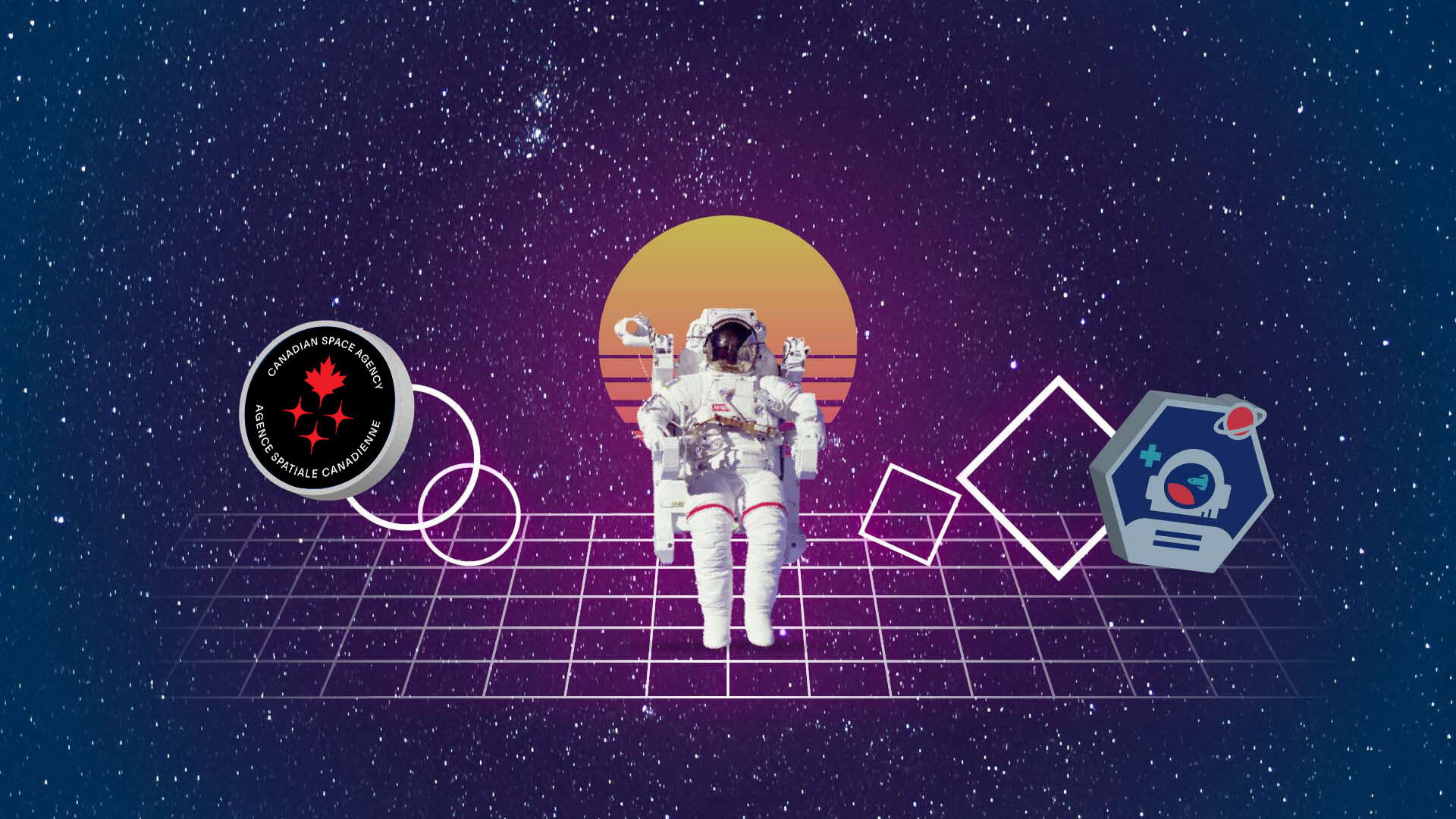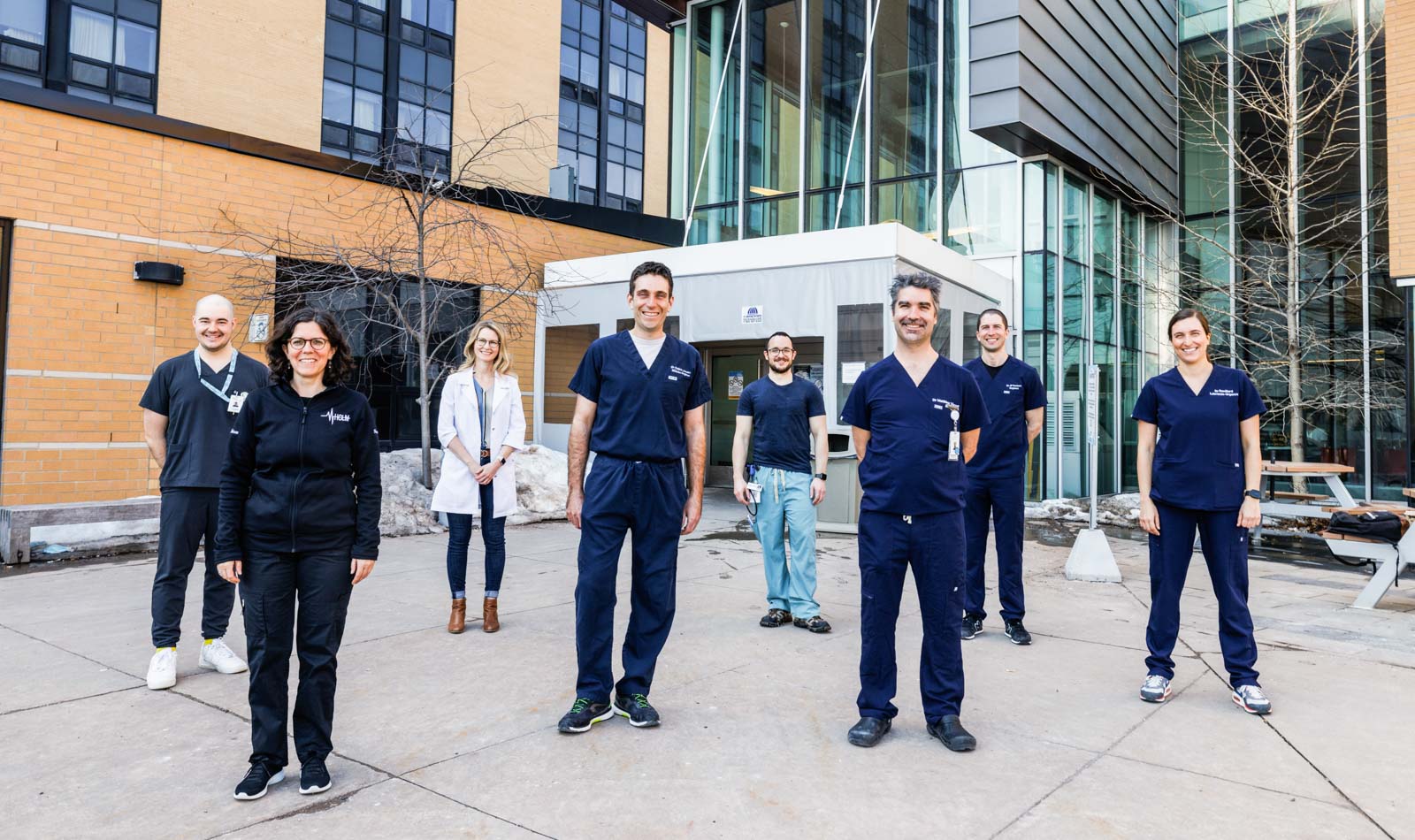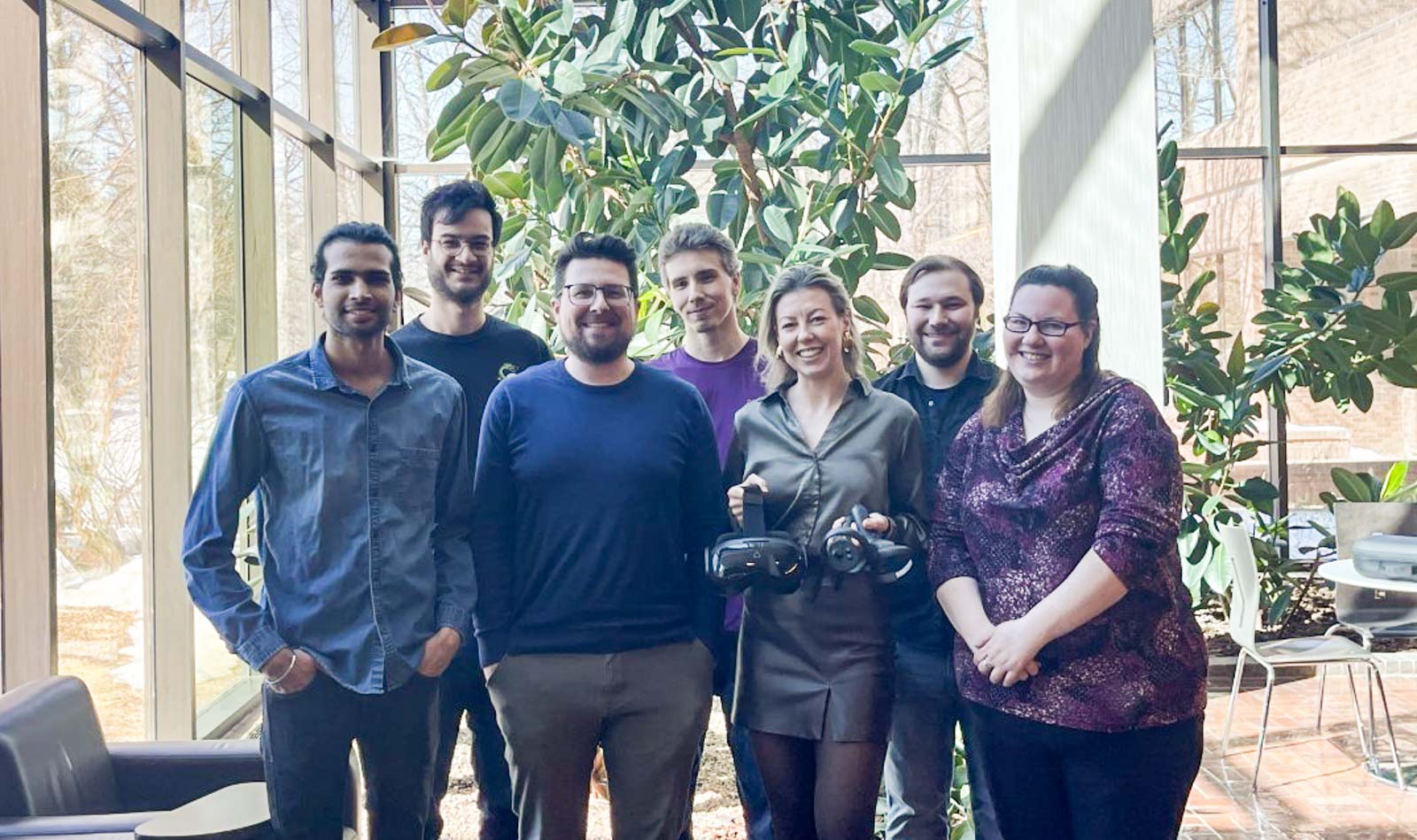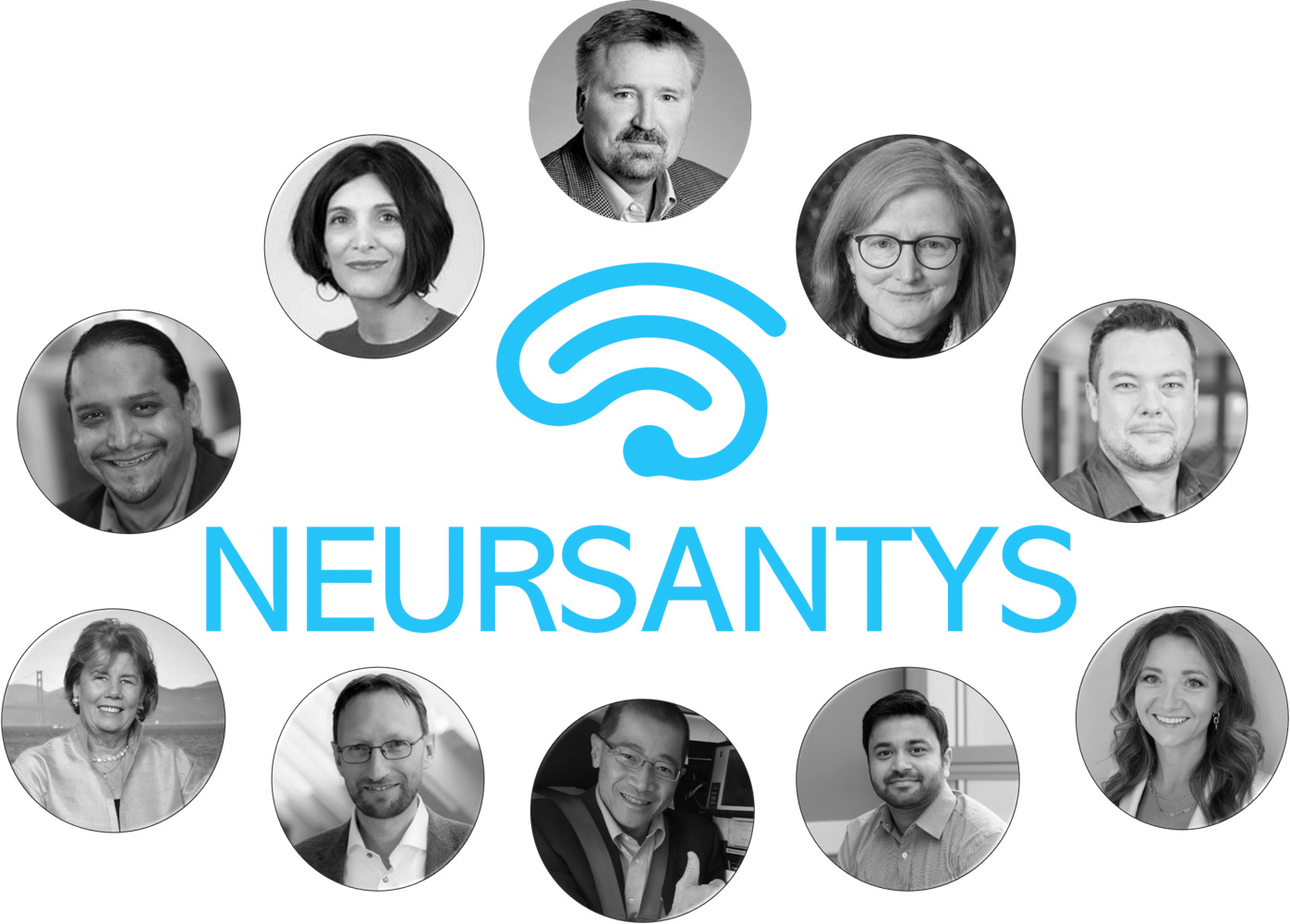
Results

MD Applications has been selected as the winner of the Deep Space Healthcare Challenge!
Following a competition spanning over two years, the winner of the Deep Space Healthcare Challenge, run by the Canadian Space Agency and Impact Canada, has been selected. Montreal-based MD Applications will receive $500,000 in grant funding as the grand prize winner. Their EZResus solution is already helping save lives on Earth and holds great potential for diagnosis and medical emergencies in space.
EZResus is an application that streamlines the information needed by emergency personnel in the critical first hour of resuscitation: from diagnosis to required drug dosage and equipment. During the final demonstration to the jury, the team proved how complex calculations and interventions can become increasingly challenging under the pressure of a life-threatening situation.
The Deep Space Healthcare Challenge was created to support healthcare needs of astronauts in space and, in turn, people living in remote communities. Members of the jury were impressed by the quality of the projects presented by all five finalists, which highlighted the innovative spirit of the Canadian medical technology sector. These solutions could contribute in a meaningful way to medical detection and diagnosis and pave the way for contributions to future human space exploration missions.
Finalists
Applications MD
EZResus
EZResus, a mobile application for resuscitation that supports people in the field

Centre for Surgical Invention and Innovation (CSii)
Development of an Autonomous and Tele-operable Medical Robot for Ultra Rapid Screening, Diagnosis and Treatment of Early Cancers and Other Needlescopic Interventions
We will build an autonomous robotic system capable of screening, point of care diagnosis and treatment of early cancers that can be operated remotely or with no human interaction, when required.

IndigenousTech.ai
AI-powered Solution for Dermatology for Primary Care Practices in Remote Communities
Autonomous AI-driven software and an imaging device attachable to a smartphone for remote monitoring and diagnosis of skin conditions under remote supervision of a specialized dermatologist.

Luxsonic
SieVRt Cardiac
An extended reality platform for remote radiology and the diagnosis and monitoring of cardiovascular disease.

Neursantys
NEURVESTA: Remote management of neurovestibular and sensorimotor disruptions
The NEURVESTA wearable device enables remote detection and correction of neurovestibular and sensorimotor disruptions caused by aging, injuries, disease, and exposure to microgravity environments.

Semi-finalists
Organization |
Concept Design Title |

ADGA Group Consultants Inc. |
AI-Powered Virtual Medical Assistant ADGA proposes to develop a Virtual Assistant designed to provide healthcare practitioners with AI-enabled guidance for the purpose of performing live medical procedures, or obtaining JIT training. |

Alentic |
Lensless Microscopy Diagnostic Platform Alentic has developed a proprietary lensless microscopy-based handled diagnostic platform that simultaneously performs multiple blood tests from single pinprick blood samples by untrained users. |

Applications MD |
EZResus EZResus, a mobile application for resuscitation that supports people in the field |

Centre for Surgical Invention and Innovation (CSii) |
Development of an Autonomous and Tele-operable Medical Robot for Ultra Rapid Screening, Diagnosis and Treatment of Early Cancers and Other Needlescopic Interventions We will build an autonomous robotic system capable of screening, point of care diagnosis and treatment of early cancers that can be operated remotely or with no human interaction, when required. |

IndigenousTech.ai |
AI-powered Solution for Dermatology for Primary Care Practices in Remote Communities Autonomous AI-driven software and an imaging device attachable to a smartphone for remote monitoring and diagnosis of skin conditions under remote supervision of a specialized dermatologist. |

LightX Innovations Inc. |
LightX Innovations – Vision diagnostics LightX is an innovative medical tool for artificial intelligence (AI) diagnostics and a platform that opens telemedicine to the field of eye care and ophthalmology. |

Luxsonic |
SieVRt Cardiac An extended reality platform for remote radiology and the diagnosis and monitoring of cardiovascular disease. |

McMaster University |
Heart-Tracker: A wearable platform for real-time monitoring of cardiac markers in interstitial fluid We propose to develop a wearable patch with non-invasive microneedles that will monitor cardiac biomarkers in interstitial fluid in real-time and could later be used to monitor other key biomarkers. |

Neursantys Inc. |
NEURVESTA: Remote management of neurovestibular and sensorimotor disruptions The NEURVESTA wearable device enables remote detection and correction of neurovestibular and sensorimotor disruptions caused by aging, injuries, disease, and exposure to microgravity environments. |

Optican Systems Inc. |
The OptiScan Near Infrared Probe for real-time Health Monitoring The OptiScan is handheld diffuse optical Near-Infrared probe for breast cancer detection. It can also be utilized to identify areas of hypoperfusion in cardiovascular disease and assess bone loss. |

Pelican MRI |
Ultralight MRI for Remote and Isolated Communities We will build robust ultralight head size MRIs to start with, moving to ultralight body size MRIs as we gain experience; our MRIs are easily 10 times lighter than existing MRIs. |

PLAKK |
Saving Lives One Scan at a Time: An Artificial Intelligence-Powered Ultrasound Guidance and Analysis Tool to Predict Stroke Risk Our artificial intelligence-powered software guides healthcare providers in performing high-quality ultrasound exams of the neck arteries, and automatically quantifies key measures of stroke risk. |

Pulsence |
Pulsence A compact pulsed near-infrared light probe for non-invasive imaging of the spaces between the skull and the brain to improve the diagnosis of brain injuries. |

Sonoscope Inc |
Hands-free automated ultrasound diagnosis module We are developing an automated data acquisition technology to enable quick, effective intervention by personnel who do not have advanced medical training. |

Swift Medical |
Pocketable, Skin and Wound Diagnostic and Monitoring Solution Pocketable, early detection and diagnostic solution that enables patients and frontline healthcare providers to autonomously identify, manage and monitor skin/wound conditions in remote communities. |

Texavie |
Autonomous, Comfortable, Health-Sensing and Therapy MarsWear Apparel For Deep Space and Remote Terrestrial Applications MarsWear intelligent apparel with embedded sensors detect joint movements, muscles and physiological parameters for creating remote personalized health diagnosis and therapy feedback. |

Tidal Medical |
Remote Detection of Respiratory and Cardiac Pathology using a Non-Invasive Diagnostic Wearable Tidal Medical has developed a wearable remote diagnostic and management tool that assesses respiratory and cardiac function using a non-invasive, non-ionizing imaging modality. |

Université de Montréal |
SPRINT - Surface plasmon resonance intelligent nanosensor technology Our proposal is to develop a versatile, miniature technology to detect biological markers (proteins and antibodies) in urine and blood for medical monitoring. |

University of New Brunswick |
An electrochemical sensor for rapid cancer biomarker detection We aim to exploit portable an electrochemical biosensor platform for rapid, point-of-care screening of selected cancer biomarkers. |

Wosler Corp. |
Autonomous Diagnostic Ultrasound Services in Deep Space and Remote Communities. We are developing an autonomous solution to enable patients in remote communities and in deep space to have access to diagnostic quality ultrasound, and to address the problem of sonographer shortage. |
Challenge details
Who can apply?
- Businesses or other for-profit organizations incorporated in Canada;
- Not-for-profit organizations registered in Canada;
- Indigenous organizations and groups located in Canada;
- Post-secondary/academic institutions located in Canada; and
- Individuals or groups of individuals located in Canada.
Individuals or groups of individuals are encouraged to submit an application, but will be required to establish a Canadian legal entity in order to be eligible to receive prizes.
Prizes
- Up to 20 prizes of $30,000 open to all eligible innovators submitting a Stage 1 concept application
- Up to 5 Prizes of $350,000 open to all Semi-Finalists participating in Stage 2
- Grand Prize of $500,000 open to all Finalists participating in Stage 3
Note: The number of winners and prize amounts may vary depending on the applications received. For each stage, prize amounts will not be less than the amount per winner indicated above.
Key Dates
- Stage 1 – Design Report Deadline: February 1, 2022
- Up to 20 Semi-Finalists Announced: April 2022
- Stage 2 – Proof-of-concept Deadline: January 2023
- Up to 5 Finalists Announced: April 2023
- Stage 3 – Prototype Demonstration Deadline: Fall 2023
- Grand Prize Winner Announced: Spring 2024